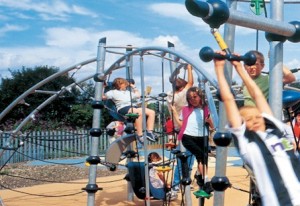Still Think That Cellphones Could Make Popcorn Dance?
DANCE, POPCORN, DANCE!!!! Buwa-ha-ha-ha!!!
We were talking about the Sun and radiation today in Science and one of the students mentioned how radiation or microwaves from cellphones made some popcorn pop. It was a good lesson on being careful about what you see on the internet and thinking scientifically. Scientists actually studied the case of the popping popcorn and debunked the video after proving scientifically that it could not happen.
Oh well, apparently it is not meant to be. I will have to put my cellphone and the popcorn away for another day! Check this article out!
Physicist Debunks Cellphone Popcorn Viral Videos
YouTube videos that show a group of friends apparently cooking kernels of popcorn with their cellphones have been viewed more than a million times since they were uploaded last week.
The clever parlor trick (see embedded clip) looks amazing enough, but there’s a hitch: It’s not physically possible, according to University of Virginia physics professor Louis Bloomfield.
“[The videos] are cute,” said Bloomfield in a phone conversation Monday. “But that’s never gonna happen.”
In a microwave oven, energy excites the water inside popcorn kernels until it turns into highly pressurized gas, causing the kernels to pop. If mobile phones emitted that much energy, the water in the fingers of people holding them would heat up.
“It would hurt like crazy,” Bloomfield said. “Cellphones probably warm your tissues, but studies indicate that’s not injurious.”
Bloomfield, author of How Everything Works: Making Physics Out of the Ordinary, dismissed theories bubbling up in comment threads about the videos that suggest harmonious vibrations are heating the corn.
“Ringing the phones doesn’t help because they’re interfering with each other and receiving a signal [from a cellphone tower] — not transmitting it,” he said. Furthermore, while it is possible to heat with sound, it’s not likely to happen at the low volume emitted by a mobile phone. “It would be like gathering opera singers together to sing, and trying to make the corn pop,” Bloomfield said.
So, what’s really causing the kernels to ricochet off the table in the YouTube clips? Bloomfield suggests tricky video editing or even a covert heating element beneath the table. Debunker website Snopes.com also points out that cooking popcorn with cellphones is impossible (same goes for eggs).
The popcorn videos, like the slew of YouTube clips showcasing ordinary people performing extraordinary feats that came before them, has the distinct markings of a viral-marketing campaign. Let’s look at the facts.
First, all four videos — French, Japanese and two American editions — were posted to the YouTube accounts of users bobtel08 and benzin513 (with French descriptions) within several days of one another.
Second, a cryptic bit of commentary posted alongside one of the videos says: “We tried but didn’t make it … maybe only with phone brands or models???” It could be a subtle hint to get viewers to notice the phones more than the stunt. And, indeed, several comments have suggested the phones all appear to be similar makes and models, possibly Nokias or Sony Ericsson mobiles.
For now, however, the clandestine origin of the videos is under wraps. Bobtel08, benzin513 and Nokia did not immediately respond to Wired.com’s requests for comment, and a representative from Sony Ericsson North America said he wasn’t aware of the videos at all.
 Here’s a neat article from a site that I like to read once and awhile. You can find the actual article
Here’s a neat article from a site that I like to read once and awhile. You can find the actual article 
 Devotion:
Devotion: